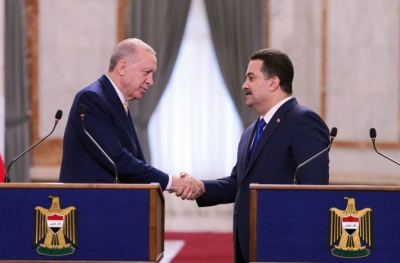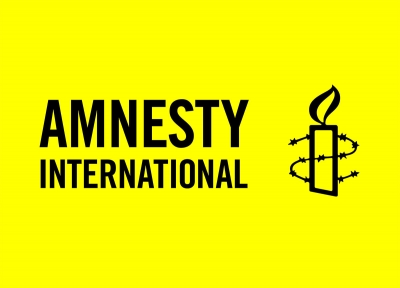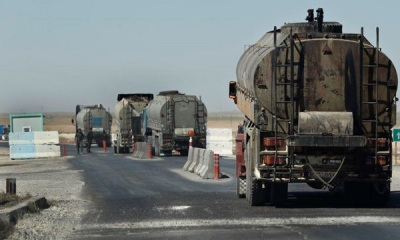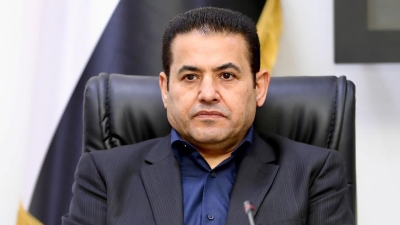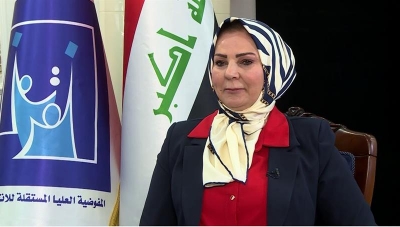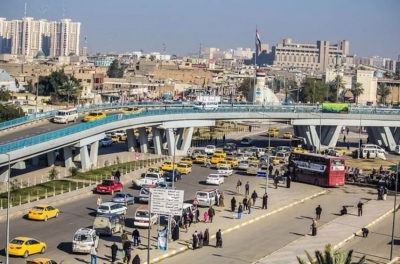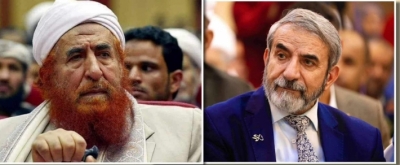not resting in peace: selling burial plots in karbala big business for some

Property prices in the southern Iraqi city of Karbala are some of the highest in the land – and now it seems that the demand for burial sites near the city are starting to reflect this too. Locals who want to rest in peace near this holy city must pay as much as 30 million dinars.
Awad al-Adili's wife died a month ago and he has brought a grave site inside the historic Wadi al-Salam, or Valley of Peace, cemetery – this cemetery bears the same name as the UNESCO heritage site, Wadi al-Salam near Najaf but it is newer than that historic resting place. He paid IQD7 million (around US$6,000) for it but only because it is right on the back side of the cemetery. “I bought this plot because it is small. But in the future all of my family will be able to use it,” al-Adili explained.
Meanwhile another local woman also bought a grave for her dead son at the back of the cemetery for IQD4 million (around US$3,400). She says her son, Ahmad, was killed in ongoing battles between militias and the Iraqi army in Anbar.
And Yassin is desperately trying to find a place to bury her son and his wife, who were both killed in an explosion several years ago. They need to be moved because their old grave site is also the place for a new road into Karbala, that's being built to ease congestion caused when pilgrims come to the city to celebrate religious occasions. But she does not know if she can afford it, she says.
“Prices for the graves vary according to size and location within the cemetery,” explains one of the undertakers there, Abdullah al-Khikany. “If the grave site is near to a paved road or to the main entrance, the price rises. Especially when compared to other parts of the cemetery and the back side of the cemetery. The graves that are easy to get to have been sold for more than IQD30 million (around US$26,000),” he noted.
A lot of the plots sold by the local authorities several years ago, says another undertaker, Mohammed al-Farjawi. These were mostly sold for around IQD65,000 (around US$56). “And now those who bought the plots back then are starting to sell them on for higher prices,” he noted.
Another local, Sajad, is a realtor and his sales office is near to Karbala's cemetery. He believes that the land sold to locals several years ago has been fenced off by the owners so that interlopers don't just come and bury their deceased there. Some of those are now selling off the plots they own and that they fenced off at higher prices.
In fact, the trade in burial sites has become big business in Karbala. Cemeteries in Iraq tend to be rather relaxed in terms of organisation and maintenance. Even if there is an official caretaker, there are usually also many unofficial helpers who aid with burials and mourning. Some of the land is owned officially by city authorities, other parts may be taken over by squatters for housing. Often the layout is confusing and one has to find a loved one's grave by memorising the spot.
“Some of the offices of the cemetery are taking part in this trade,” a local man who wished to be known only as Zubair, told NIQASH. “They look for empty plots near where they think a dead person's relatives live and they try to sell the plot at higher prices – not less than IQD1 million per plot.”
Zubair say this happened to him: he went to one of the offices to ask about a plot nearer his own home – his son had died in Syria and he wanted to be nearer to him and to be able to visit him easily.
To solve some of these problems, the Karbala authorities are apparently planning to sell off further burial plots this year. “The Karbala municipal authorities plan to distribute land in the cemetery to those who want it this year,” Majid Naji, the spokesperson for Karbala's local authorities, told NIQASH. Over1,600 burial plots were given out to locals in 2011 but since then the higher number of deaths in Iraq due to extremist violence and other incidents have led to a shortage, he explained.
“The problem is that most of the people [Shiite Muslims] in provinces near to Karbala want to bury their dead near or in Karbala,” economist Mohammed al-Yassiri reasoned. Karbala is an extremely holy city of the country's Shiite Muslims and “with the exception of those in Najaf, everyone wants to see their deceased relatives buried here. That leads to a higher demand and therefore higher prices.”
Locals at the cemetery looking for affordable burial plots thought the current problems could be solved if local authorities set up a special department to deal with cemetery affairs that would coordinate with the council and also with the city's religious authorities. This department could look after the cemetery properly, supervise its layout and maintenance and make them better places for visitors.
Hadi al-Moussawi thought it would be a good idea to put lights in the cemetery and to plant trees as well as erect signs and name the cemetery's streets and intersections, so that the mourners could find their loved ones' graves more easily.
“This graveyard could become a historic and religious landmark if we put a fence around it and decorated it with traditional art,” al-Moussawi suggested.
Local journalist Hussein al-Shammari thought the authorities should step in and sort out the exploitative sale of burial plots first, by passing special legislation to deal with offenders. “These opportunists are using other people's sadness and misfortune for their own ends,” al-Shammari said.
